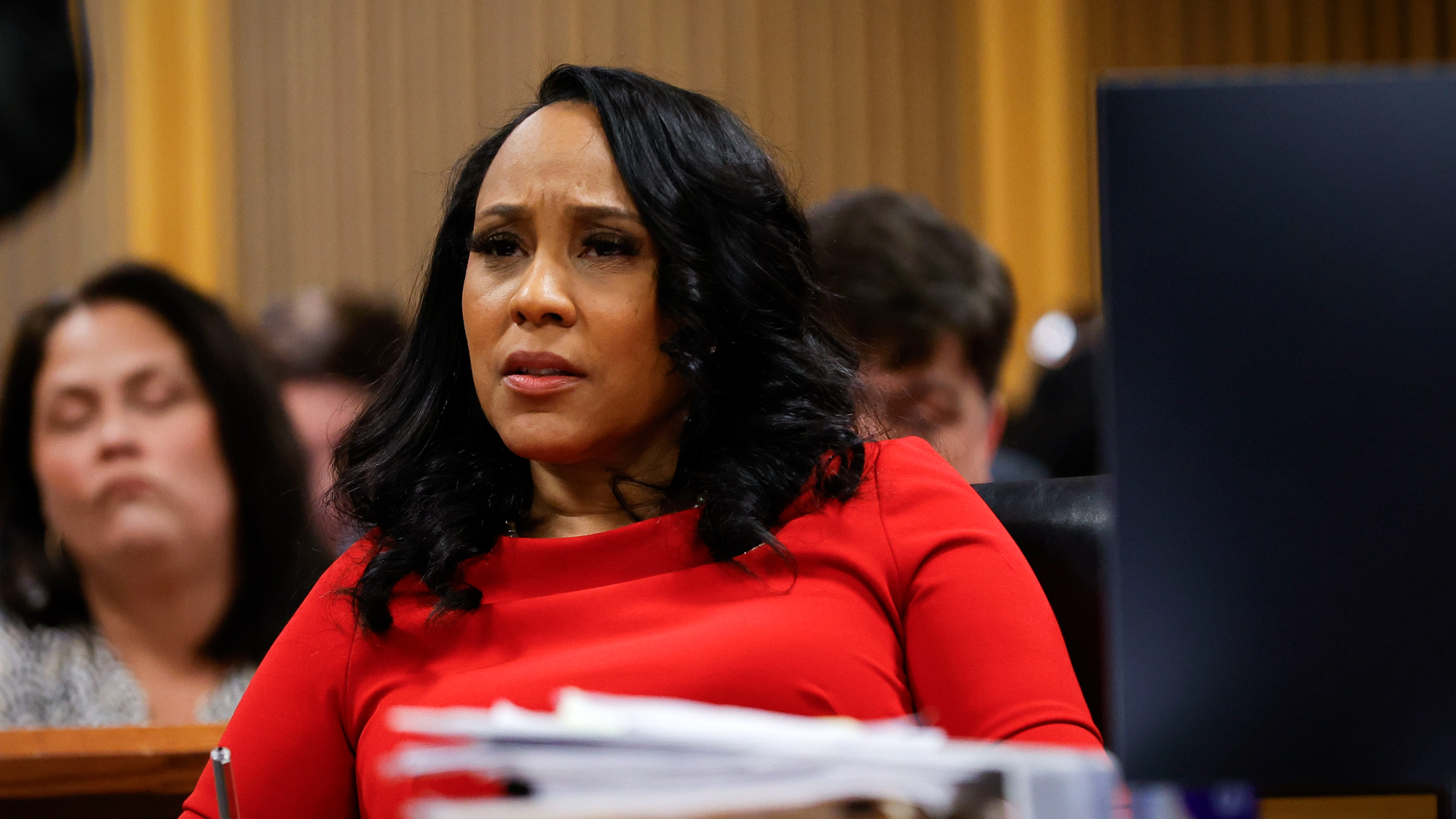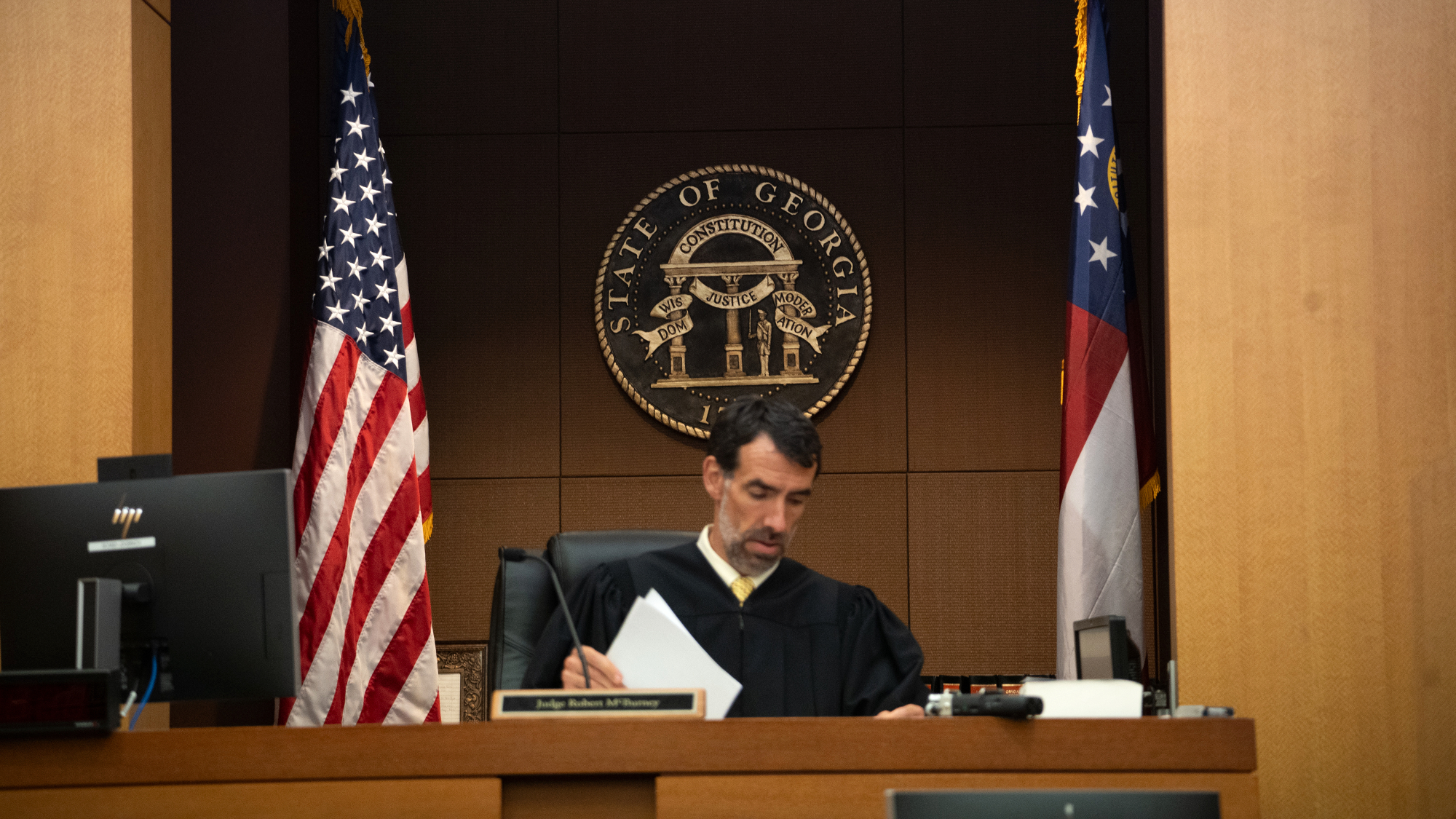Did the GOP learn anything from Herschel Walker's loss?
The sharpest opinions on the debate from around the web


A free daily email with the biggest news stories of the day – and the best features from TheWeek.com
You are now subscribed
Your newsletter sign-up was successful
Sen. Raphael Warnock (D-Ga.) won Georgia's Senate runoff election this week, beating first-time candidate Herschel Walker, a former professional football star, to strengthen Democrats' control of the Senate by giving them a 51-49 majority. That will get Democrats out of the power-sharing deal they had to make with Republicans in the current 50-50 Senate, and grant them a majority on all committees. It also will keep any single Democrat from blocking one of President Biden's nominees, or holding up legislation, and will boost the party's chances of retaining Senate control in 2024.
Warnock won by 2.8 percentage points, expanding his November lead of just 0.9 percent. Republicans immediately started debating what the defeat — in a key race in a once reliably red state — meant for the party. Some blamed Walker, an unvetted political newcomer who sailed to the nomination with former President Donald Trump's enthusiastic support, but battled gaffes and reports that he paid for ex-girlfriends' abortions despite his support for a ban on the procedure. Others said the GOP needed to find campaign messages with more appeal to voters beyond the MAGA base. Did Walker's loss teach Republicans a lesson they can use to avoid a repeat of election disappointments like the one Georgia voters just handed them?
The lesson here is don't let Trump pick GOP nominees
"The biggest lesson of the 2022 midterms is that Mr. Trump picks losers," says The Wall Street Journal in an editorial. Trump is "now 0-3 in Georgia Senate races, counting the two 2021 runoffs that he sabotaged, plus Mr. Walker's loss." And the Senate candidates he endorsed lost in nearly every swing state this year. Only J.D. Vance won (in Ohio), and that was largely thanks to $32 million in ads from a Super Pac linked with Senate Minority Leader Mitch McConnell (R-Ky.).
The Week
Escape your echo chamber. Get the facts behind the news, plus analysis from multiple perspectives.

Sign up for The Week's Free Newsletters
From our morning news briefing to a weekly Good News Newsletter, get the best of The Week delivered directly to your inbox.
From our morning news briefing to a weekly Good News Newsletter, get the best of The Week delivered directly to your inbox.
The bottom line is that Republicans "could have regained the Senate this year" if Trump hadn't foisted a bunch of losing candidates onto the party. "The evidence is overwhelming over the last three election cycles that Mr. Trump and the crazy parts of Trumpism alienate suburban voters and divide the GOP. Denying that is denying reality and will guarantee more needless Republican losses in 2024."
Republicans can now confirm Georgia is competitive
Georgia has "grown less rural and less white" in recent years, says John Cassidy in The New Yorker. Both demographic trends favor Democrats. Suburban neighborhoods around the state's major cities, including Atlanta, Savannah, and Augusta, are growing particularly fast. That helped Warnock and fellow Democrat Jon Ossoff win tight runoffs in 2020 and contributed to Warnock's victory again this week.
It might seem counterintuitive, but this runoff showed that Republicans remain strong in Georgia, despite a population shift that left the proportion of the state's population identifying solely as white in the 2020 census at a record low. The reason is simple. "Among Georgians who vote, the proportion of whites remains higher." Sixty percent of the Georgia midterm electorate identified as white, "and more than half of these voters don't have a college degree, which, these days, makes them statistically more likely to vote Republican." Walker was the "clear outlier" in Georgia for the GOP this year. His "weak performance relative to his fellow Republicans provides strong evidence that the biggest impediment to his campaign was himself rather than changing demographics." The fact that he was able to keep the race tight added to the evidence that the GOP "still has a formidable base in Georgia."
The GOP needs to embrace early and absentee voting to boost turnout
This vote showed that "runoff elections are less about persuasion and more about driving turnout of your supporters," says Edward Lindsey at CNN. That's where Republicans fell short, judging by Warnock's larger victory in the runoff than in November's first round. "Republicans seem to have been hampered in their efforts over the last two election cycles by Trump's denigration of early in-person voting and absentee mail-in voting."
A free daily email with the biggest news stories of the day – and the best features from TheWeek.com
The resistance among GOP voters to early voting gave Warnock a head start. Walker was forced to place most of his "hopes for victory on Election Day voting. While Walker did well in Election Day voting, he could not overcome the lead Warnock's campaign built up in early voting." GOP operatives and other elected officials should use this result as inspiration to do a better job of countering "Trump's claims and urge their supporters to view each of these methods as reliable." Otherwise, GOP candidates will always be playing catch-up when in-person voting starts.
Walker schooled election deniers in how to lose with grace
"Give Walker some credit," says Jim Geraghty in the National Review. Yes, he probably lost because many Republicans were willing to "overlook his flaws" and vote for him in November when the Senate was at stake, but just couldn't do it after Democrats had already cemented Senate control. But at least Walker "had the good sense to concede the race … instead of claiming that Warnock's roughly 90,000-vote margin reflected voter fraud or suppression or rigged election machines or some other nonsensical conspiracy theory."
It might not seem like much, but the GOP needs more candidates willing to remind Republicans of the right way to lose a legitimate election in a democracy. Arizona gubernatorial candidate Kari Lake, one of the "lone holdouts," refused to concede, mirroring Trump's "stop the steal" shenanigans. That only made her look irrelevant as everyone else went on with life in the real world. "Despite a lot of fears that the 2022 midterms would end in chaos, most of the 'election denier' candidates ended up conceding their races." That's how it's done.
Harold Maass is a contributing editor at The Week. He has been writing for The Week since the 2001 debut of the U.S. print edition and served as editor of TheWeek.com when it launched in 2008. Harold started his career as a newspaper reporter in South Florida and Haiti. He has previously worked for a variety of news outlets, including The Miami Herald, ABC News and Fox News, and for several years wrote a daily roundup of financial news for The Week and Yahoo Finance.
-
 The ‘ravenous’ demand for Cornish minerals
The ‘ravenous’ demand for Cornish mineralsUnder the Radar Growing need for critical minerals to power tech has intensified ‘appetite’ for lithium, which could be a ‘huge boon’ for local economy
-
 Why are election experts taking Trump’s midterm threats seriously?
Why are election experts taking Trump’s midterm threats seriously?IN THE SPOTLIGHT As the president muses about polling place deployments and a centralized electoral system aimed at one-party control, lawmakers are taking this administration at its word
-
 ‘Restaurateurs have become millionaires’
‘Restaurateurs have become millionaires’Instant Opinion Opinion, comment and editorials of the day
-
 South Korea to fetch workers detained in Georgia raid
South Korea to fetch workers detained in Georgia raidSpeed Read More than 300 South Korean workers detained in an immigration raid at a Hyundai plant will be released
-
 Jimmy Carter honored in state funeral, laid to rest
Jimmy Carter honored in state funeral, laid to restSpeed Read The state funeral was attended by all living presidents
-
 Georgia DA Fani Willis removed from Trump case
Georgia DA Fani Willis removed from Trump caseSpeed Read Willis had been prosecuting the election interference case against the president-elect
-
 Can Georgia protests halt pro-Russia drift?
Can Georgia protests halt pro-Russia drift?Today's Big Question Government U-turn on EU accession sparks widespread unrest that echoes Ukraine's revolution a decade ago
-
 Was Georgia's election stolen?
Was Georgia's election stolen?Today's Big Question The incumbent Georgian Dream party seized a majority in the disputed poll, defying predictions
-
 'Art is inherently difficult to put a value on'
'Art is inherently difficult to put a value on'Instant Opinion Opinion, comment and editorials of the day
-
 Georgia judge suspends new hand-count ballot rule
Georgia judge suspends new hand-count ballot ruleSpeed Read The rule would have required three poll workers in every precinct to hand-count votes
-
 Georgia top court reinstates abortion ban
Georgia top court reinstates abortion banSpeed Read The Georgia Supreme Court moved to restore the state's six-week abortion ban. Many women do not yet know they are pregnant at six weeks.
